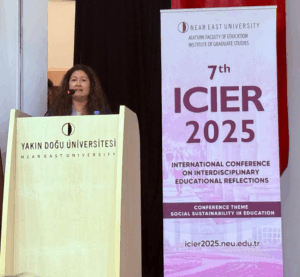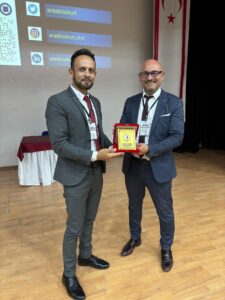Hosted jointly by the Faculty of Education and the Graduate School of Educational Sciences at Near East University, the 7th International Conference on Interdisciplinary Educational Reflections (ICIER 2025) was successfully held on May 8–10, 2025, at the NEU campus in Nicosia. Themed “Social Sustainability in Education,” this year’s conference aligned closely with the United Nations Sustainable Development Goals (SDGs) and brought together a wide range of interdisciplinary perspectives from education and beyond.
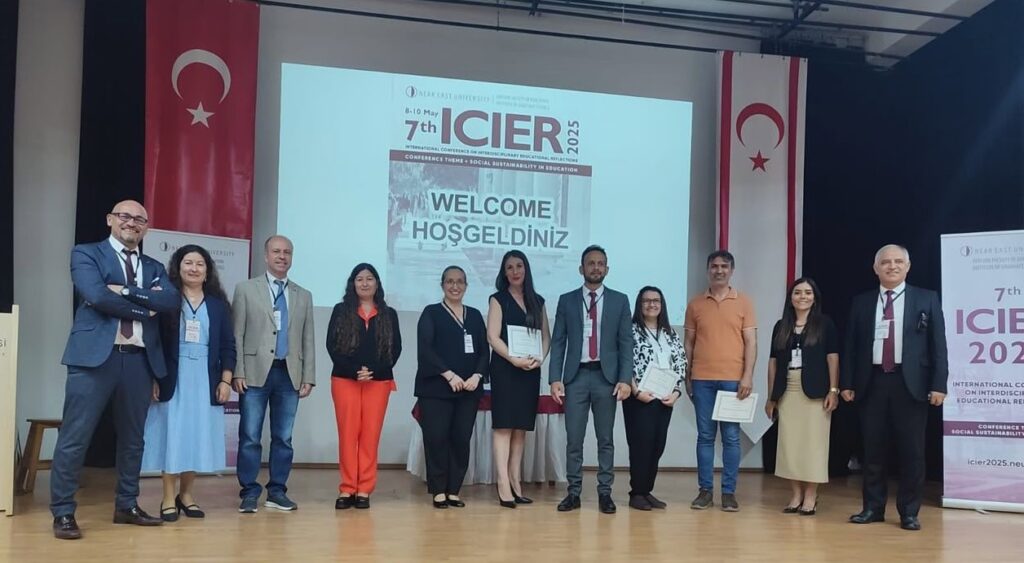
Gathering participants from over ten different countries and numerous universities across the Turkish Republic of Northern Cyprus, ICIER 2025 created a vibrant platform for academic exchange and professional development. With its dynamic structure combining theory and practice, the conference provided a stimulating experience for more than 130 attendees, and featured over 70 scholarly presentations.
Interdisciplinary Themes and Global Participation
As in previous years, ICIER 2025 continued its tradition of selecting timely and transformative themes. This year’s focus on social sustainability in education reflected the growing global demand for inclusive, equitable, and future-oriented educational practices. The presentations covered a wide range of topics spanning social sciences, engineering, and education, emphasizing how interdisciplinary approaches can inform educational theory and practice.
The conference opened with keynote speeches by internationally renowned scholars. Among them were:
- Prof. Dr. Aras Bozkurt, Member of the Grand National Assembly of Turkey’s AI Commission and Dean of Anadolu University’s Open Education Faculty
- Prof. Dr. Yunus Eryaman, Former President of the World Education Research Association (WERA)
Both keynote speakers emphasized the importance of integrating artificial intelligence into sustainability efforts, teaching processes, and educational programs.
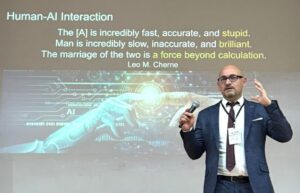
Prof. Dr. Bozkurt focused on the definition, usage, and ethical considerations of generative AI, warning that technology alone is not sufficient—what is needed are human-centered and supervised implementation strategies.
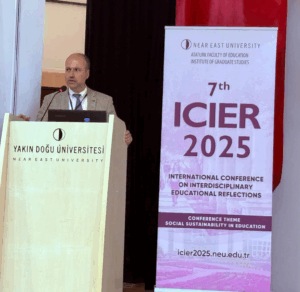
Prof. Dr. Eryaman, in his talk titled “School Evaluation and Educational Excellence Based on AI and Big Data,” explored evidence-based education policies from a global perspective, while also highlighting the strategic roles played by international bodies such as WERA and EERA (European Educational Research Association).
Workshops that Brought Theory into Practice
In addition to oral presentations, the third day of the conference featured four hands-on workshops that reached 80 participants, including academics, graduate students, and practicing teachers. These workshops were collaboratively conducted with the University’s Center for Educational Research, the Community Research and Development Center, and external stakeholders including the Turkish Cypriot Psychological Counseling and Guidance Association and the Interactive Drama Association.
Led by experts in their fields, the workshops offered interactive, skills-based learning experiences:
- Ayşem Tomgüsehan, President of the Interactive Drama Association, led the workshop titled “21st Century Life Skills: Sustainable Effective Communication”, guiding teacher candidates in developing essential interpersonal skills through drama-based learning.
- Assoc. Prof. Dr. Şengül Başarı, NEU faculty member and a member of the Turkish Cypriot Psychological Counseling and Guidance Association, conducted “Bibliotherapy Applications for Quality Education”, focusing on emotional and cognitive development through literature.
- Prof. Dr. Murat Tezer, from Near East University, led the session “Statistical Applications in Education”, providing practical insights into how to effectively apply statistical analysis in educational research.
- Dr. İslam Suiçmez, from the University of Kyrenia, delivered a workshop on “Qualitative Data Analysis Applications: QDA Miner”, offering hands-on training in using QDA Miner software for textual data analysis.
All participants who completed the sessions received official certificates.
Voices from Leadership: A Vision for the Future
In the opening ceremony, Prof. Dr. Umut Akçıl, Dean of the Faculty of Education, emphasized the need for deep structural changes in the education system to support social sustainability. He stated: “To ensure this transformation, we must closely follow the demands of the modern era and technological advancements. Near East University has pioneered artificial intelligence in education by launching the ‘Prof. Dux’ project and founding the Faculty of Artificial Intelligence and Informatics. At the heart of these efforts lies our commitment to helping students experience the future today.”
